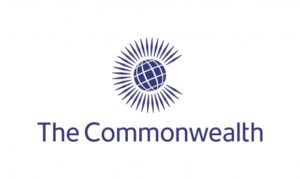
Commonwealth Secretary-General, Rt Hon Patricia Scotland, has declared that “Our immediate and most urgent priority must be greater access to vaccines.”
Speaking in Barbados at the UN trade conference UNCTAD15, Scotland said: “Before we can even speak about recovery, our immediate and most urgent priority must be to ensure greater access to vaccines for developing countries and especially least developed countries. Of the 42 small states of the world, 32 are members of the Commonwealth which I have the honour of representing.”
According to the Commonwealth Secretary-General, “For just two days’ worth of global vaccines, we could fully vaccinate and protect these smallest and most vulnerable nations. From Africa to Asia and the Caribbean to the Pacific, it is heartening to see regional cooperation and regional solidarity at work to enhance vaccine access and distribution. The task ahead is to galvanise this same spirit of regional solidarity to help ensure an inclusive and sustainable recovery,”
Joining Secretary-General Scotland on the hybrid virtual and in-person roundtable were Ms. Rebeca Grynspan, Secretary-General, UNCTAD; Ms. Marsha Caddle, Minister in the Ministry of Economic Affairs and Investment, Barbados; Mr. S. Kishore, Vice Minister, Ministry of Commerce and Industry, India; Mr. Albert Muchanga, Commissioner for Economic Development, Trade, Industry and Mining, African Union Commission and Ms. Eleanor M. Fox, Walter J. Derenberg Professor of Trade Regulation, New York University, School of Law.
The theme of the roundtable was ‘Regional integration for a resilient, inclusive and sustainable future‘.
Speaking to a virtual audience of over 400 attendees plus 50 Ambassadors, Secretary-General Scotland stressed that countries must have a holistic response to responding to the multiple and interlinked global crises of the pandemic, climate change and its economic fallout.
“The Commonwealth spans across five regions. Regional integration allows for pooling of scarce resources and sharing of capacity, knowledge, data and best practices. It can also enhance governance by encouraging countries to converge or harmonise their national laws and policies on a range of issues from anti-corruption to environmental protection,” said Secretary-General Scotland.
The Commonwealth Secretariat works alongside member countries to facilitate regional cooperation, provide technical assistance, build trade competitiveness and diversify economies to take advantage of new trading opportunities – both regionally and globally. Programmes such as the Commonwealth Connectivity Agenda support members to strengthen their physical, digital, regulatory, supply-side and business-to-business connectivity by sharing best practices, policies and peer learning.
 ..:: AUTO REPORT AFRICA ::..
..:: AUTO REPORT AFRICA ::..





